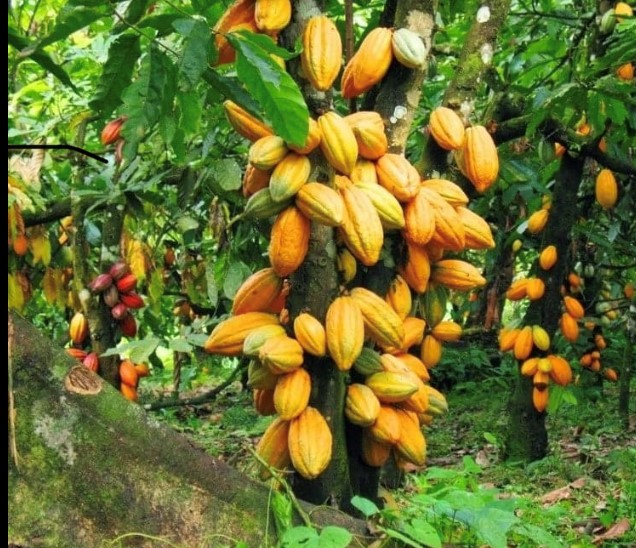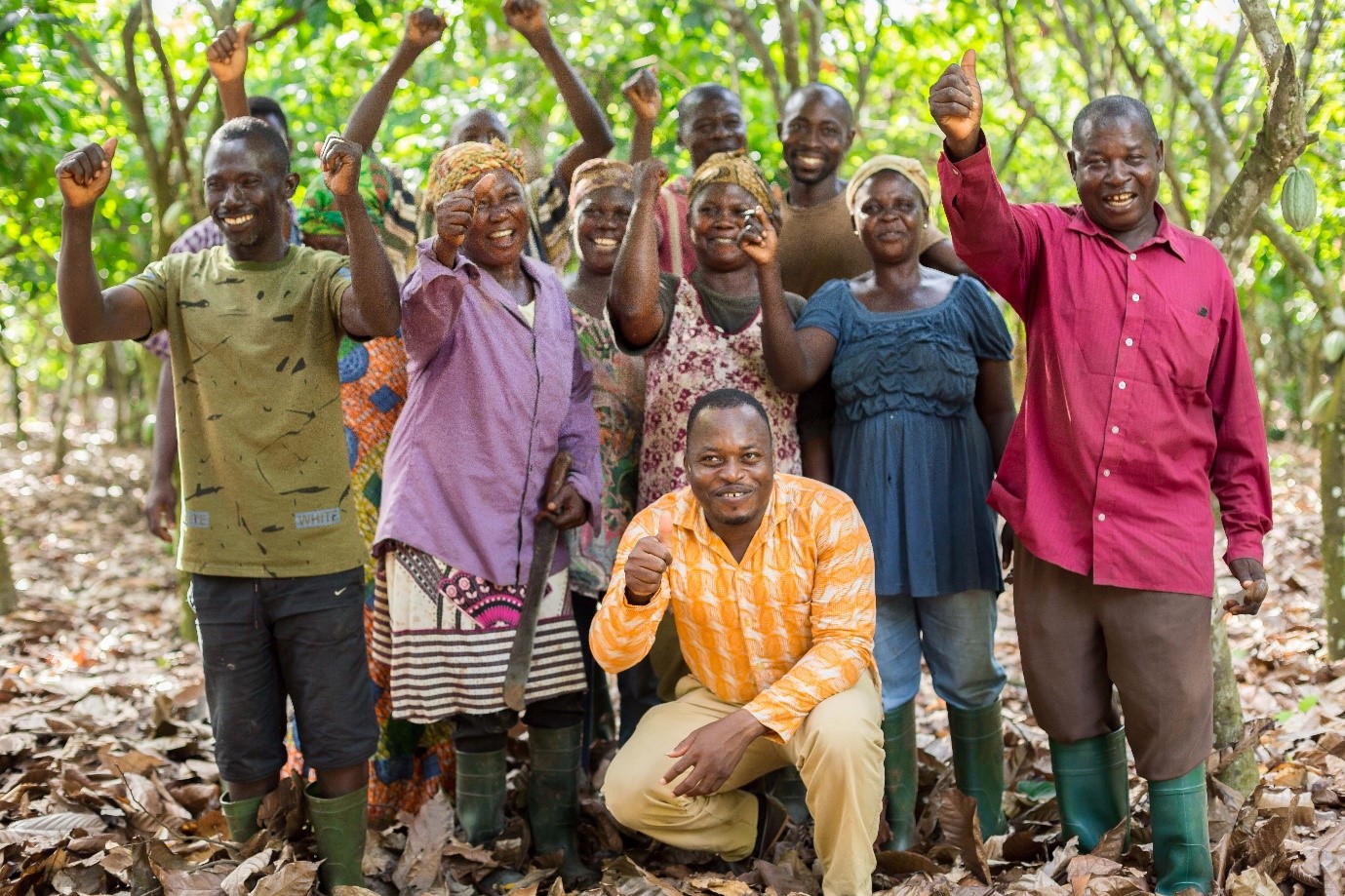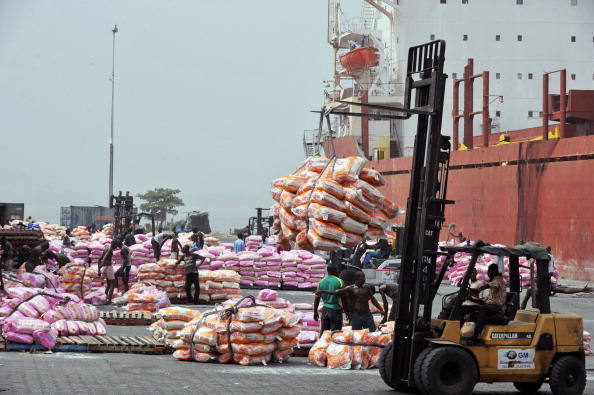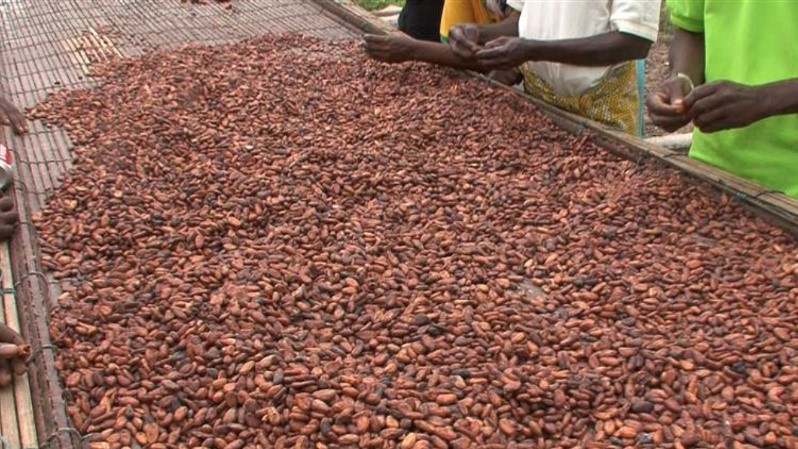Ghana’s President Nana Addo Dankwa Akufo-Addo has taken the boldest economic step in recent memory by announcing that Ghana will no longer export raw cocoa to Switzerland – and, perhaps, other western countries. Rather, the world’s second-largest producer of cocoa will increase cocoa processing and chocolate production for export.
Switzerland is one of the leading manufacturers of chocolates in the world and buys the bulk of its cocoa from two West African neighbours – Ghana and Ivory Coast. In fact, Ghana is Switzerland’s biggest trading partner in sub-Saharan Africa. It thus makes sense for Ghana to start the trade dialogue with Switzerland; and if indeed Switzerland is willing to help Ghana transition into an industrialised country, the nation’s leaders should embrace Ghana’s new trade initiative.
A year ago, Ghana’s president became the first African leader to be invited on a rare state visit to Switzerland. Rather than the usual fanfare that characterises presidential visits, President Akufo-Addo used the platform to announce a mindset-shift from a bulk supplier of raw cocoa to an exporter of processed and semi-processed cocoa for export. He told his host: ”We intend to process more and more of our cocoa in our country, with the aim of producing more chocolate ourselves”.
Although the president’s visit was a little over 12 months ago, its relevance has been rekindled by debates sparked by recent impediments placed by rich countries seeking to bar poor countries from replicating coronavirus vaccines. Poor countries like Ghana are hoping to produce COVID-19 vaccines, if pharmaceutical corporations can waive intellectual property claims.

Despite the seriousness of the pandemic, western countries are bent on invoking intellectual property rights under the WTO to protect western pharmaceuticals companies. From this perspective, Ghana is right in pushing for the export of semi-processed and finished cocoa products rather than exporting raw cocoa beans. This policy appears to be in tandem with Ghana’s developmental ambitions such as ‘Ghana Beyond Aid’.
Backbone of economy
For decades, cocoa has remained the backbone of Ghana’s economy; providing a source of livelihood to about 800,000 small-scale cocoa farmers who make up 60% of the country’s agricultural base. However, despite their contribution to Ghana’s development, many cocoa-farming families live in abject poverty – mainly due to low cocoa prices on the international market. Ghana has over the years earned less than the value of raw cocoa supplied to the world market. Statistics show that cocoa farmers earn a per capita daily income of approximately US$0.40 – $0.45 from cocoa. This amounts to an annual net income of US$983.12 – $2627.81 and accounts for two-thirds of cocoa farmers’ household income, according to Bloomberg reports.
From all indications, the earnings of cocoa farmers are a far cry from the revenue cocoa generates for western companies and economies. Jointly, Ghana and Ivory Coast produce two-thirds of the world’s cocoa. Sadly, cocoa farmers from the two countries continue to wallow in poverty even though their toil continues to sustain the economies of western countries.
It is estimated that the UK chocolate industry is worth £3.96billion, and sales of chocolate have seen a global upsurge – with forecasts of an estimated 35% increase in sales over the next five years. Overall, the global chocolate market size was valued at US$130.56billion in 2019 and is expected to grow at a compound annual growth rate (CAGR) of 4.6% from 2020 to 2027 (Bloomberg 2019; Reuters 2019).
Out of this huge global cocoa revenue, Ghana receives only US$2billion from syndicated loans for purchasing the beans for export. Conversely, the United States of America alone makes over US$40billion annually in retail sales of chocolate and cocoa products. In 2018, Bloomberg reported that Ghanaian and Ivorian cocoa farmers accrued only 5.5 percent of a global supply chain worth more than US$100billion. This is even less than 15% of the governments’ revenue a value-added tax on the sale of chocolate products in western countries, where chocolate is consumed massively.
Unfair economic order
What’s more, the unfair global world economic order and trade restrictions make it impossible for ‘made in Ghana chocolate’ or finished cocoa products to enter any western market. The west is only interested in importing raw cocoa beans as part of an ideological strategy to keep Africa as the producer and supplier of raw materials.
Estimates show that if Ghana’s chocolate had a mere one percent access to European markets, Ghana would earn more than US$5billion annually. Undoubtedly, the trade restriction on finished cocoa products to Europe is a daunting challenge that confronts President Akufo-Addo as Ghana embarks on this global economic reversal.
History indicates that Ghana’s first president, Dr. Kwame Nkrumah, attempted to regulate the cocoa market by building storage facilities to process and store cocoa beans. Through the storage, Nkrumah had hoped to dictate the global supply and price of cocoa for the local economy’s benefit. Ideologically, this policy did not go down well with the European powers and was probably one of the reasons western powers they were complicit in the overthrow of Kwame Nkrumah.

Pan-African agenda
Akufo-Addo’s statement to the Federal Council of Switzerland has been rightly described by Pan-Africanists as forthright and a possible route through which Africa can alter the rules of global trade. I support the notion that Africa has been marginalised in the international trade arena for too long, hence the need to break that injustice. More than ever, Ghana needs to move beyond primary commodity exports to value addition, especially in the processing of cocoa into finished and semi-finished products for exports.
Last year, both Ghana and Ivory Coast threatened to withhold sales of cocoa to United States manufacturers – accusing U.S. confectionary giants Hershey’s and Mars of declining to pay a bonus meant to improve the economic fortunes of poor farmers. The Coffee Cocoa Council (CCC) and the Ghana Cocoa Board (Cocobod) in a statement said two of the world’s top chocolate sellers were not paying the living income differential (LID).
The LID gives cocoa farmers a bonus of Us$400 per tonne in addition to the market price and is envisioned to cushion poor cocoa farmers. The US$400 a tonne LID on cocoa sales for the 2020/2021 season was successfully negotiated by the two biggest West African cocoa producers.
Ghana is responsible for about 30% of global cocoa output, and for this reason commodity analysts have forecast that Ghana’s move toward processing cocoa could reduce raw cocoa export to western countries. As stated earlier, Ghana’s development partners must embrace the fact that the country’s current move to diversify exports falls within the trajectory of its new development paradigm.
Unfair cocoa prices
According to the World Bank, agriculture and its related activities remain the primary occupation for two-thirds of the population. The gross domestic product (GDP) of Cote d’Ivoire in 2017 was US$37.4billion – cocoa was the top export commodity, generating US$3.79billion; cocoa-paste and cocoa-butter generated US$1.1billion, US$1.04billion and US$624million respectively.
Similarly, Ghana’s economy thrives on cocoa exports. In 2017, Ghana exported US$17.1billion worth of goods and conversely imported US$13.2billion, recording a balance of trade of US$3.9billion and a GDP of US $59billion. Cocoa beans and cocoa paste ranks 3rd and 4th on the 2017 list of top exports of Ghana – contributing US$1.77billion and US$538million respectively.
According to Bloomberg and Reuters, over the past two years the price of a tonne of cocoa has dropped from US$3,000 to a little over US$1,900 in the space of two years – even though there has been a significant rise in production of the cash crop. This development has affected the economic activities of cocoa farmers, since their incomes have decreased by 30-40 percent as recorded by the Cocoa barometer in 2018.
The decline in price of cocoa has been a major problem for cocoa farmers of the two biggest producers, Ivory Coast and Ghana – the two economies have suffered revenue reversals. In the interim, the International Monetary Fund (IMF) cautioned the two countries to reduce the domestic price of cocoa to reflect the drop in price of cocoa on the international market. The Ghana government not only rejected the caution from the IMF, but also increased the producer prices.

In the first quarter of 2018, the Ghana’s President Nana Akufo-Addo and the President of Cote d’Ivoire, Alassane Ouattara, signed the ‘’Abidjan Declaration’ to reaffirm their commitment to leading other producer-countries in addressing challenges plaguing the cocoa sector.
The inclusion of Nigeria and Cameroon into the current debate strengthens the five global producers’ resolve to address the deteriorating situation in the cocoa industry. Cameroon and Nigeria are also experiencing negative impacts from the huge drop in price of cocoa. Cocoa was Nigeria’s 4th-top export, generating US$660million and a GDP of US$375billion in 2017. Cocoa is the 3rd-top exporter of Cameroon, generating revenue of US$492million to a GDP of US$34.9billion in 2017.
Inadequate processing
Several commodity watchers, including national governments, have identified inadequate processing as a challenge to producer countries. Sadly, for many decades, cocoa has been exported from Africa in its raw form. This is perhaps the reason Ghana, Ivory Coast, Nigeria and Cameroon have been unable to receive an equitable share of global cocoa revenue. On the other hand, the European market accounts for about 50% of the global retail sales for chocolate.
In 2017, the European cocoa-processing industry experienced an increase of 1.3 million tonnes, representing 2.6%, and exported US$20.6billion of chocolate products. The chocolate market accounted for about 74% of the global sales for cocoa as published by the CBI-Centre for the Promotion of Imports from developing countries.
Within this period, cocoa-producing countries in Africa continued to experience negative impacts from the huge drop in price for cocoa. This is ample justification for Ghana, Ivory Coast, Nigeria and Cameroon to invest in processing cocoa into finished goods if they intend to accrue enough revenue from the cash crop, and possibly break the western monopoly over cocoa processing.

The Ghana Cocoa Processing Company currently has an installed capacity of a mere 25,000 tonnes. Currently, government is investing in-plant expansion to increase the processing capacity from 25,000 tonnes to 65,000 tonnes of cocoa beans a year. Increased cocoa processing is even more critical if Ghana is to take advantage of the Africa Continental Free Trade Area Agreement (AfCFTA). AfCFTA offers the biggest opportunity for Ghana to supply premium cocoa products to the continent. Much as increased cocoa processing is meant to boost local industrialisation and job creation, it is also the surest means to ensure Ghana gets a fair share of the global cocoa revenue.
(***The writer is a Development and Communications Management Specialist, and a Social Justice Advocate. All views expressed in this article are my personal views and do not represent those of any organisation(s). (Email: [email protected]. Mobile: 0202642504/0243327586










